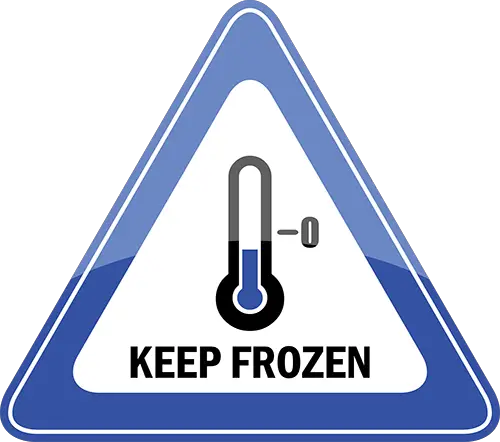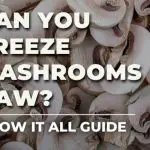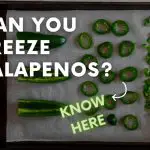How To Freeze Carrots Both Raw & Blanched (Easy Guide)
The hardest part about cooking at home is the prep, and having ready-to-cook ingredients makes the process less time-consuming, easier, and more fun. But, is it possible to prep and freeze all the ingredients you might need. Specifically, can you freeze carrots?
You can freeze carrots, whether they are raw carrots or recently blanched. Frozen carrots, when properly prepared, can last up to 1 year in the freezer. Over time, however, frozen carrots will begin to lose quality, nutrient value, and crispness.
In this article, we’ll take an in-depth look into carrot preservation. We’ll also cover how to tell if they’re still good to eat and how to enjoy them after freezing. Let’s get to the icy details.

Freezing Carrots: Fresh and Blanched
While it may not seem reasonable to freeze a fresh vegetable because of the potential of losing some of the nutrients, it’s the best way to keep them long-term. Like any other vegetable, it is possible and normal to freeze carrots to prevent them from going limp or rotting.
Freezing carrots is generally accomplished by blanching the vegetable before thoroughly drying it and placing it in an airtight container. But, what about the fresh kind?
Freezing Fresh Carrots (Raw & UnCooked)
If you’re too tired to blanch the carrots before popping them in your freezer, you’ll be happy to know that you can successfully freeze raw carrots. Simply wash them, dry them, and put them in a freezer-safe container or bag.
Know, however, that not blanching the carrots first reduces the time they’ll stay good in the freezer. Carrots will lose their texture and quality faster if you freeze them without blanching.
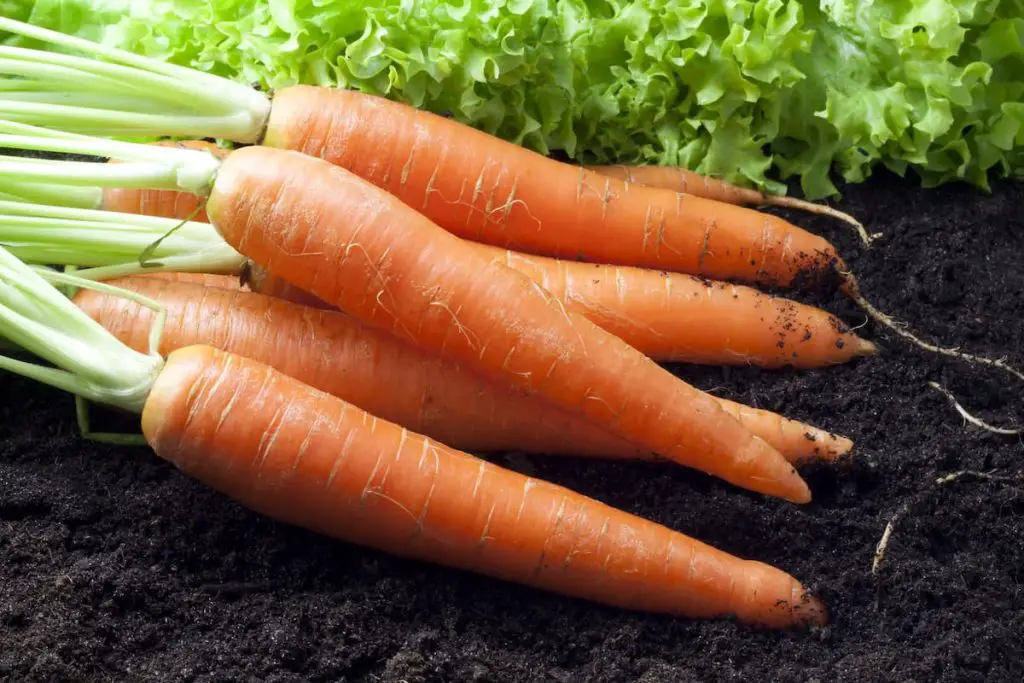
How To Freeze Carrots (Blanching)
While it’s safe to pop your carrots into the freezer without blanching them first, it’s always worth it to spend a little bit of time prepping them first. The simple added step of blanching your carrots before freezing them can keep your frozen carrots fresh for up to 12 months!
If you’re not familiar with blanching, it’s when you quickly cook the carrot in boiling water for a couple of minutes prior to freezing them. Cooking just the outside layer of the carrot will help preserve its color, taste, and texture while it’s in the freezer.
So, here’s a step-by-step outline on how to blanch and freeze your carrots!
- Wash the carrots.
- Cut them into consistent sizes (cubes, slices, diced, etc.).
- Boil a pot of water.
- Prepare a bowl with water and ice (it’s also good to have some kitchen towels standing by.)
- Put the cut carrots into the boiling water.
- Boil the carrots for three to five minutes depending on size.
- Remove them with a slotted spoon and put them into the bowl of ice water to stop them from cooking further.
- Leave them in the ice bath for the same amount of time as you boiled them.
- Drain and dry them completely.
- Arrange them on the tray lined with parchment paper to avoid sticking.
- Put the tray in the freezer for a couple of hours until they’re solid (aka flash freezing).
- Put them in an airtight container or reusable freezer bag.
- Store them in the freezer for up to a year.
Tips for Freezing Carrots
However straightforward the process, some quality tips always lead to better results. Here are some tips to keep your frozen carrots in the best shape:
- The smaller the carrot, the shorter the blanching time.
- Don’t peel your carrots before freezing to preserve the nutrients and quality of the carrots.
- When you’re flash-freezing before storing, ensure that the carrot pieces aren’t touching each other.
- Seal the carrots in a bag tightly before storage (make sure to press all the air out of the bag before sealing).
- If your carrots are limp or rubbery, they’ve been blanched for too long or weren’t in the ice bath quick enough.
Do The Carrots Have To Be Dry Before Freezing?
Your carrots must be completely dry before you freeze them. Otherwise, they’ll quickly become freezer burned. When carrots are put in resealable bags with too much air or flash frozen while still slightly wet, the moisture condenses and gives them freezer burn.
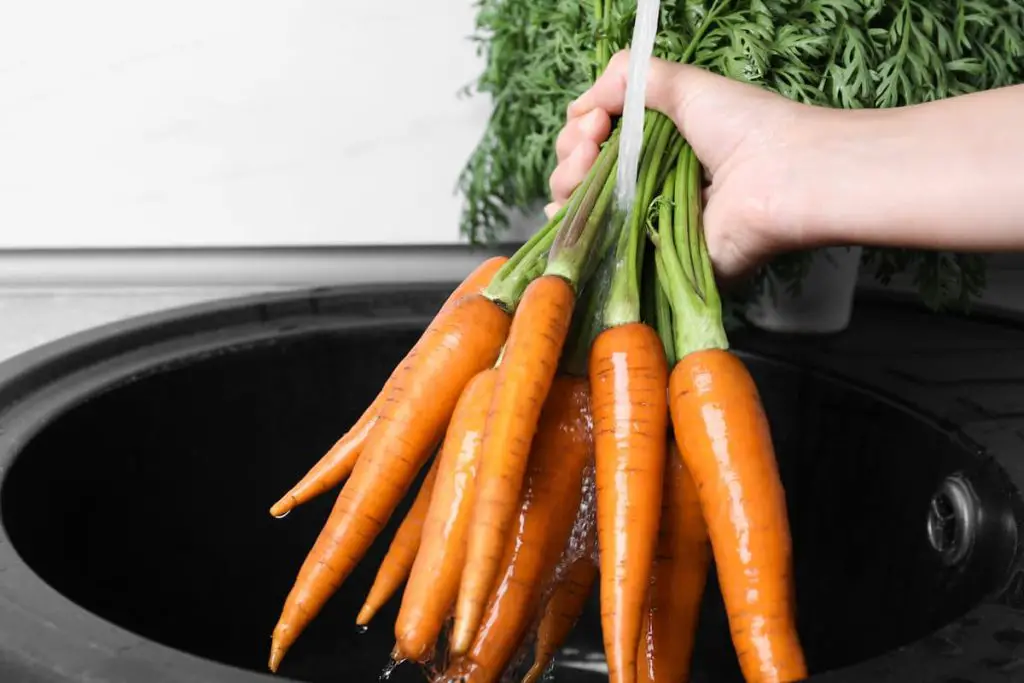
While you can still eat carrots with freezer burn, they won’t have the same texture or taste. They will be unappetizing at best. Freezer burn might also lead to the carrot being inedible altogether.
Can You Freeze Carrots Whole?
You can freeze carrots whole if you like. Often, however, it’s easier to cut them up before freezing to save time in the cooking process later. Also, be aware that a whole carrot frozen will take more time to thaw than pieces of carrots that have been frozen.
Are Carrots Still Good if Frozen?
Carrots are still good if frozen. As long as they are frozen correctly, appropriately stored, and are used correctly, they remain suitable for consumption for up to 12 months. Even after 12 months, they’ll be good to eat, but you may find issues with the flavor and texture.
But, if you’ve left your previously frozen carrots out for longer than six hours at room temperature, you’ll have to throw them out. Due to the fluctuation in temperature and the time they’ve spent at room temperature, the chances of bacteria and contamination are high.
Not to mention, you’ll find them slimy to touch and entirely unappetizing.
Why Are Some Frozen Carrots Rubbery?
There are several reasons your carrots might be rubbery and limp. Over-blanching them is the most common reason. Basically, the rubbery texture occurs when the carrot loses too much moisture on the inside.
Since carrots are mostly water, they lose structural integrity when they start transpiring or releasing moisture into the air. It’s what makes them limp and rubbery. However, that doesn’t mean that they’re bad to eat. You can still eat them; they’ll just taste a little weird.
Let’s check out a few more reasons your carrots may be rubbery.
Slow Freezing
Most home refrigerators don’t have the power to freeze carrots as quickly as needed. Through no fault of their own, the freezers in most homes aren’t perfectly made for the flash freezing your blanched carrots require. It leads to a limp and slightly rubbery carrot.
When flash-freezing make sure that your freezer is as cold as it will go and the quick freezing process should work well enough.
The Carrots Weren’t Fresh
Old carrots tend to go limp on their own. Before you can blanch, freeze, or store them, they will have already started to go limp. Thinking about it logically, they’ve been out of the ground and aging for longer than freshly picked carrots. So, they are bound to lose structural integrity faster.
So, no amount of blanching, freezing, or cooking can change the structural integrity of the carrot. Once it is old, rubbery, and limp, it will remain that way until it rots.
Carrots in Poor Storage
Lastly, improper storage of frozen carrots can lead to rubbery, limp vegetables.
Fluctuating freezer temperatures, leaving them at room temperature for too long, and not using the proper containers lead to carrots losing their moisture and going rubbery.
To prevent such issues, you can try the following tips:
- Use airtight, freezer-compatible storage.
- Make sure the freezer temperature remains constant.
- Do not leave carrots at room temperature for more than a couple of hours.
- Dry the carrots and remove as much air from the storage bags as possible.
How To Properly Thaw Frozen Carrots (3 Ways)
Once you’ve frozen and stored your carrots, it is time to use them in a dish.
There are three possible ways to thaw or use your frozen carrots:
Thaw Carrots Overnight in The Fridge
Whether it is a carrot or a different frozen vegetable, it will thaw perfectly if you stick it in the refrigerator overnight. Since you’re not leaving it at room temperature, it won’t go bad.
You would only thaw frozen carrots before cooking to reduce the overall cooking time. Since they’ve been blanched already, you’ll find that the carrots are already partially cooked. But, you don’t have to thaw them first to add them to various recipes.
Thaw Carrots on The Stove
If you’d like your carrots to thaw faster than waiting overnight, just put them into a pan and heat them on the stove. Use a nonstick pan, a few tablespoons of water, and some olive oil with your frozen carrots.
Start on the lowest heat setting and slowly raise it until cooked. Blanched carrots will take some time to cook, so you will have to be patient.
Thaw Carrots in Your Meal
If you do not have the patience to carefully thaw them, put them directly into the meal you’re cooking. It will add a few extra minutes to your cooking time, but there’s no harm in that.
If you are cooking a stew or soup, there’s enough liquid to allow for a proper thawing of the frozen carrots. Just add them straight out of the freezer!
Conclusion
Like any other vegetable, you can freeze carrots. While they are best fresh, frozen carrots are perfectly okay to eat and use while cooking. It is best to blanch them before freezing so that they maintain their color, nutrients, and overall texture.
Remember that all frozen vegetables lose quality to a certain degree when spending time in the freezer. That, however, doesn’t mean they aren’t still full of nutritious goodness. It is better to eat a slightly less crunchy carrot than throw it out and waste it!
